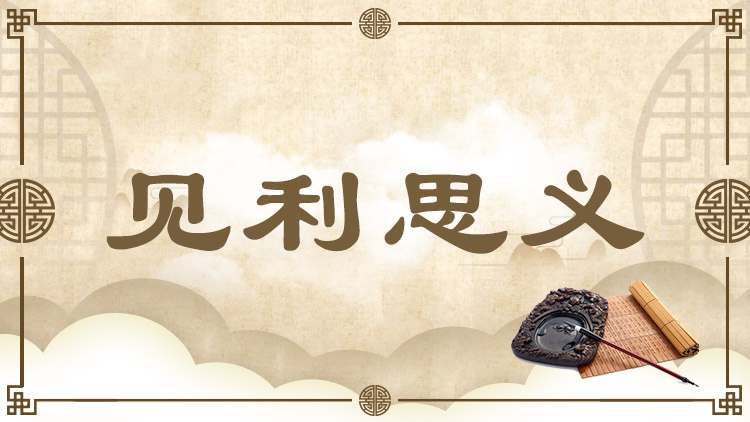见利思义 Think of Righteousness in the Face of Gain

在面对利益之时,首先思考、分辨利益的获取是否符合道义。是儒家用以处理义利关系的准则。对利益的追求与对道义的坚守之间常存在冲突。人们往往会因为贪图私利而忽视道义,行背德违法之事。针对这种情况,孔子提出了“见利思义”的主张,倡导人们应该在道义的原则之下谋求利益。知晓道义的是君子,一味追求利益的是小人。
When faced with gain one should first consider and distinguish whether the obtainment of gain is in accord with morality. This is a Confucian criterion for dealing with the relation between righteousness and gain. Between the pursuit of gain and the upholding of morality a conflict has long existed. Because people more often than not may covet personal gain and overlook morality, their actions may go against virtue and violate the law. Against this kind of situation Confucius advanced the stand of "thinking of righteousness in the face of gain," proposing that people should strive for gain on the basis of the principle of morality. He who knows morality is a man of virtue, and he who blindly pursues gain is a petty man.
引例 Citation:
◎见利思义,见危授命,久要不忘平生之言,亦可以为成人矣。(《论语·宪问》)
看见利益时思考该不该得,遇到危险时肯付出生命,经过长久的穷困而不忘记平日的诺言,也可以说是成人了。
He who when faced with gain thinks of righteousness, who when confronted with danger is ready to lay down his life, and who does not forget a past promise despite enduring poverty, may be considered a true man! (The Analects)
推荐:教育部 国家语委
供稿:北京外国语大学 外语教学与研究出版社
责任编辑:钱耐安





